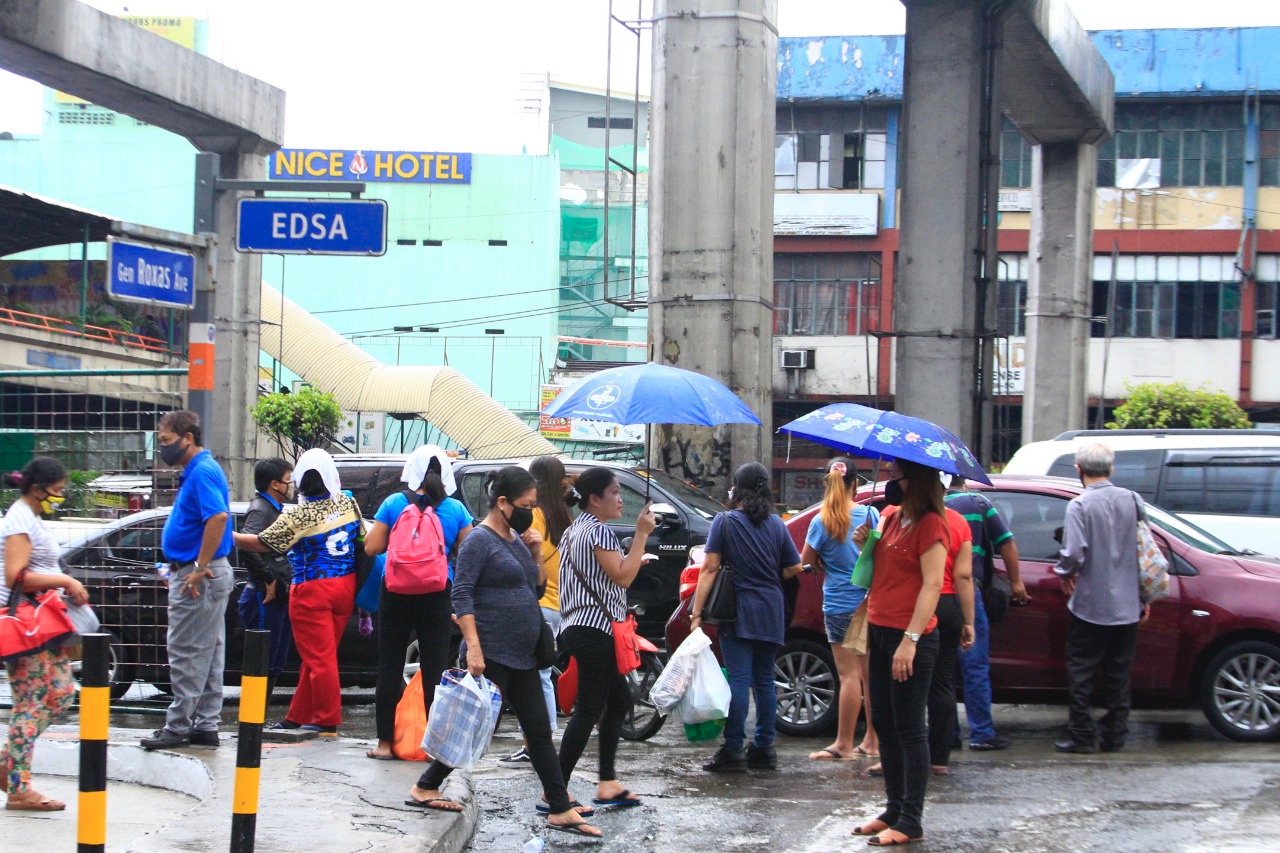MANILA, Philippines – A semblance of normalcy can be seen in several parts of Metro Manila as it transitions to a general community quarantine (GCQ) amid the still increasing number of COVID-19 patients.
But while roads were brimming with private vehicles again, several workers found it hard to go and leave their work areas because of the lack of available public transportation modes.
In Cubao, Quezon City, people were stranded due to rains in the area and the lack of available transportation modes. Even if the Light Rail Transit Line 2 (LRT-2) has resumed services, it operated only until Cubao Station as repairs on the damage at the Santolan and Katipunan Stations have not been finished.
People waiting along Aurora Boulevard — just outside Cubao Terminal Station — told INQUIRER.net that the few buses making trips to the eastern parts of Metro Manila were all at full capacity due to distancing measures placed to prevent coronavirus transmissions.
“Wala, punuan eh, puno na lahat eh, (No ride is available, buses are already full)” a commuter said.
Others, on the other hand, tried to hitchhike, or ask private motorists for free rides. However, none obliged, probably to avoid direct contact with other people.
Meanwhile, some other workers have chosen to use their own modes of transportations — bicycles, electric kick scooters and motorcycles just to get to their workplaces.
As of Monday evening, only taxis and some transport network vehicle services and buses were available, aside from Metro Manila’s rail systems. However, originally long train queues might even be longer as only 160 persons would be allowed per train.
READ: Metro Manila commuters face manic Monday
Some public transportation modes may be made available in the coming days, even if vans and jeepneys are considered high-risk vehicles because of the proximity of passengers.
President Rodrigo Duterte last Thursday approved the easing of quarantine regulations in Metro Manila and other areas, which were previously under a modified enhanced community quarantine have been eased.
However, this has been met with criticisms, especially after health authorities reported the single-highest number of cases in a day last Thursday.
Department of Health Undersecretary Maria Rosario Vergeire however clarified that the high numbers were a result of late validation of laboratory results which were released last week but were submitted late.
Currently, the Philippines has 18,638 COVID-19 patients, 960 of which have died while 3,979 have recovered.
